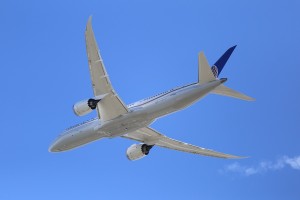You are inactive and seated for long periods of time when you are flying. The environment can be pressurised and low in humidity. Air travel allows for fast movement across many time zones unlike other forms of transportation, causing a disruption to the body’s ‘biological clock’.
Here is a list of things you can do to take care of your health in-flight and after:
Cabin Humidity and Dehydration
Humidity levels are less in the cabin. This can cause drying of the throat, nose and eyes.
We recommend that:
During your flight you drink water and juices frequently.
Drinks like tea, coffee and alcohol can increase the body’s dehydration so don’t drink them in excess.
If your eyes are irritated remove contact lenses and wear glasses.
To refresh the skin use a skin moisturiser.
Eating and Drinking
Both during and after your flight proper drinking and eating will improve your comfort.
We recommend that:
Just before and during the flight avoid overeating. When the body is inactive it is difficult to digest too much food.
In-flight Workout
Certain muscle groups can become stiff as a result of long periods of sitting. These exercises will help muscle relaxation by increasing the blood circulation of the body.
Some of the exercises are:
- Ankle Circles: Move one foot clockwise and the other foot counter clockwise. Reverse circles.
- Neck Roll: Drop ear to shoulder after relaxing shoulders and gently roll neck forward and back. For about five seconds hold each position. Repeat five times.
- Knee to Chest: Clasp hands around the left knee and hug it to your chest. Hold stretch for 15 seconds. Repeat 10 times.
- Forward Flex: Slowly bend forward with both feet on the floor and stomach held in, and walk your hands down the front of your legs toward your ankles. Slowly sit back up after holding stretch for 15 seconds.
- Shoulder Roll: Roll your shoulders in a gentle circular motion.
Every hour do these exercises for around three or four minutes. Also, occasionally get out of your seat and walk down the aisles.
Cabin Pressurisation
For your health and comfort it is necessary to pressurise the external air drawn into the cabin to an adequate density.
During climb and descent the change in cabin pressure does not pose a problem for most travellers. However, you could experience discomfort if you suffer from sinus infections, or certain cardiovascular conditions.
Use nasal sprays half an hour before the descent if you have nasal congestion. This will help open up your ear and sinus passages.
Try swallowing or yawning to ‘clear’ your ears.
If you are flying with a baby give your baby a dummy during descent as swallowing will help infants level the pressure in their ears.
Jet Lag
When you travel to different time zones without giving the body a chance to adjust to new night and day cycles it can cause jet lag. Your biological clock is disturbed the more time zones you cross during your flight. The common symptoms are tiredness, sleeplessness, and appetite at odd hours or loss of appetite.
Try these tips to minimise the effects of jet lag:
- Before your flight get a good night’s rest.
- If possible, after arrival give yourself a day or two to adjust to the new time zone.
- If you suffer from sleeplessness after your arrival try some light exercise, do some reading, or go for a brisk walk.


